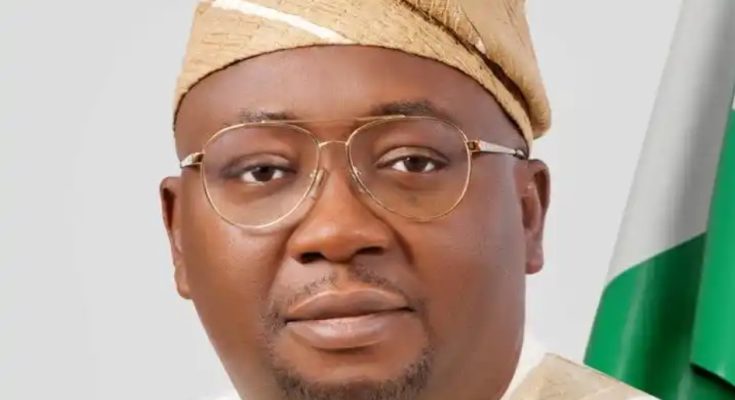Minister of Power, Adebayo Adelabu, has revealed he receives threat calls from persons who are against the progress of the power sector.
Adelabu spoke in Oyo State during Fresh FM’s ‘Political Circuit’ programme on Saturday,
According to him, all challenges in the power sector are surmountable.

His words: “There will be resistance, people stand in your way, saboteurs and others. Let me say this for the first time. I receive threat calls.
“I am the 49th power minister in the country. The past ministers were probably bullied and intimated in their work. It does not take ordinary people to blow up a power transmission substation with dynamites, and pull down a power line.
“It is an organised crime. It is a cabal and cartel. We are all Nigerians but we are all Nigerians, we will not run away from ourselves.”
Speaking further on the significant development attained in his one year in office, he said Nigeria had struggled with electricity generation of 4,000 megawatts (MW).

READ ALSO: APC Chieftains Accuse Adelabu Over Alleged Discrimination In Power Sector
He added that in less than a year in office, his development plans have added more than 1,000MW of electricity to the capacity of the national grid.
“We have raised the electricity generated capacity from 4,000MW to 5,155MW recorded on the 8th of August, 2024. In the past, it took the country over 25 years to achieve 2,000MW of power and it took between 1984 and today to achieve additional 2,000MW.
“When we resumed as minister, the electricity generated was 4,000MW and within a year, we have added over 1,000MW. Our target is to hit 6,000MW with the support of the Federal Government before the end of this year,” he said.
Adelabu said a comprehensive diagnosis of the entire ministry “with many organised retreats to find workable and practical solutions to the quagmire in the ministry.”
“First we needed an underlining legislation that will decentralise control and make states as players in the value chain.
“It took the effort of President (Bola) Tinubu who signed the Electricity Bill into law which allowed states and private sectors to join and invest in the sector.
“We implemented the supportive policies to act as guiding principles. Then we moved to the market where we looked at the cost reflective tariff as well as infrastructural development, enhancement and upgrade. Extension to remote areas with the adoption of renewal energy and power asset security against saboteurs,” he added.








